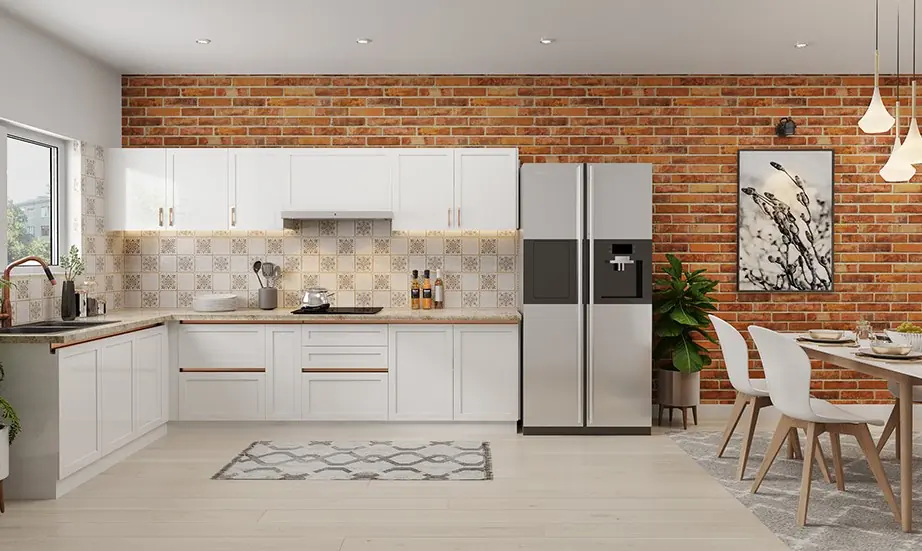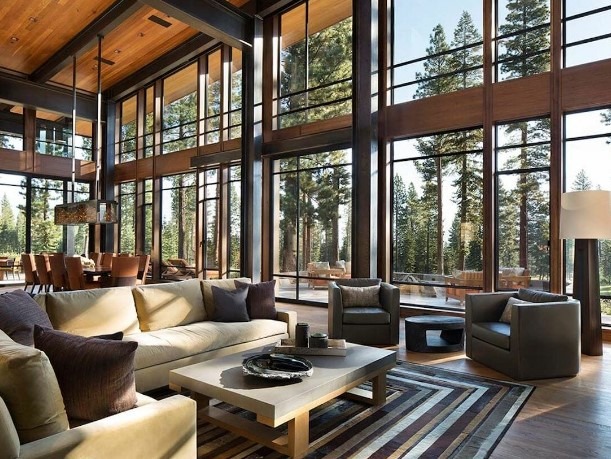Welcome to our comprehensive guide on energy-efficient home improvements! If you are looking to make your home more environmentally friendly while saving on utility bills, you have come to the right place. With years of experience in the field of energy-efficient home improvements, we are here to provide you with a wealth of knowledge and actionable tips that will help you transform your home into an efficient, eco-friendly haven.
At a time when climate change and sustainable living are becoming increasingly important, making your home more energy-efficient is a significant step towards reducing your carbon footprint. It not only contributes to a cleaner environment but also results in long-term savings on energy costs. By implementing the right measures, you can make your home more comfortable, healthier, and cost-effective.
1. Smart Technology: The Future of Energy Efficiency
In this digital age, smart technology has revolutionized the way we live, and it plays a crucial role in achieving energy efficiency at home. By integrating smart devices and automation systems, you can control and optimize energy usage with ease. From smart thermostats that learn your temperature preferences to automated lighting systems that help reduce unnecessary energy consumption, these technologies are key to creating an energy-efficient home.
The Benefits of Smart Technology
Smart technology offers a multitude of benefits when it comes to energy-efficient home improvements. It allows for:
- Remote control and monitoring of energy usage
- Customized scheduling for appliances and devices
- Automated adjustment of temperature, lighting, and other systems
- Energy consumption analytics and recommendations
By harnessing the power of smart technology, you can make informed decisions about your energy usage, resulting in reduced wastage and significant cost savings in the long run.
Implementing Smart Technology in Your Home
To incorporate smart technology into your home, start by focusing on the following areas:
- Smart thermostats: Replace traditional thermostats with programmable ones for efficient temperature control.
- Smart lighting: Install automated lighting systems that can be controlled remotely or through voice commands.
- Smart appliances: Upgrade to energy-efficient, connected appliances that optimize usage based on your needs.
By embracing these smart technologies, you can revolutionize your home’s energy efficiency while enjoying the convenience they offer.
2. Insulation: Your Key to Energy Savings
Insulation is one of the most effective ways to improve energy efficiency in your home. Proper insulation helps maintain a consistent indoor temperature while reducing the need for excessive heating or cooling. By reducing heat transfer, insulation not only keeps your home comfortable but also lowers your energy consumption and utility bills.
The Importance of Insulation
Insulating your home offers a wide range of benefits, including:
- Reduced energy consumption and lower utility bills
- Enhanced comfort by maintaining consistent temperatures
- Noise reduction
- Improved indoor air quality by minimizing drafts and air leaks
Insulation is not limited to walls and attics; it is equally important for other areas, such as floors, basements, and ductwork. Ensuring proper insulation throughout your home can lead to substantial energy savings and a more sustainable living environment.
Types of Insulation
Various insulation materials are available, each with its own unique properties and applications. The most common types of insulation include:
- Fiberglass insulation
- Spray foam insulation
- Cellulose insulation
- Rigid foam insulation
Based on your home’s requirements and your budget, you can choose the most suitable insulation material to optimize energy efficiency.
Windows and Doors: An Energy Leak?
Windows and doors are notorious for allowing heat transfer and air leakage, resulting in significant energy loss. Investing in energy-efficient windows and doors can combat this issue. Look for windows and doors with advanced glazing, weatherstripping, and insulation properties to improve insulation and energy efficiency.
3. Renewable Energy: Harnessing the Power of the Sun
Renewable energy sources, such as solar power, offer an excellent way to reduce your carbon footprint and increase energy efficiency in your home. Solar panels convert sunlight into usable electricity, providing a sustainable and clean energy source.
Benefits of Solar Energy
By investing in solar energy, you can enjoy a multitude of benefits:
- Reduced reliance on fossil fuels
- Significant savings on energy bills
- Financial incentives, including tax credits and rebates
- Increased home value
- Long-term energy security
While the initial cost of installing solar panels may seem high, the long-term savings and positive environmental impact make it a worthwhile investment.
Solar Energy for Your Home
When considering solar energy for your home, there are a few key factors to keep in mind:
- Assess your home’s solar potential: Take into account factors like roof orientation, shading, and available space to determine the feasibility of solar panel installation.
- Choose the right solar panel system: Consider factors such as panel efficiency, warranties, and installation costs when selecting a solar panel system that suits your needs.
- Seek professional installation: It is crucial to have your solar panels installed by qualified professionals to ensure a safe and efficient setup.
By going solar, you can contribute to a greener future while enjoying the benefits of clean, renewable energy.
Table: Breakdown of Energy-Efficient Home Improvements
| Energy-Efficient Home Improvement | Description | Benefits |
|---|---|---|
| Smart Thermostats | Programmable thermostats that optimize temperature control | Energy savings and customized comfort |
| LED Lighting | Energy-efficient lighting that lasts longer | Reduced energy consumption and lower electricity bills |
| Solar Panels | Converts sunlight into usable electricity | Renewable energy, long-term cost savings, and reduced carbon footprint |
| Insulation | Materials used to reduce heat transfer | Lowered energy bills, increased comfort, and noise reduction |
| Energy-Efficient Windows | Windows designed to reduce heat transfer | Improved insulation, reduced energy wastage, and increased comfort |
| Energy-Efficient Appliances | Appliances with high energy efficiency ratings | Reduced energy consumption and lower utility bills |
| Water-Saving Fixtures | Water-efficient faucets, showerheads, and toilets | Conserved water resources and decreased water bills |
| Solar Water Heaters | Heats water using solar energy instead of electricity or gas | Energy savings and reduced reliance on traditional heating methods |
| Heat Pumps | Energy-efficient devices that transfer heat | Reduced heating and cooling costs |
| Weatherstripping | Sealing gaps and cracks to prevent air leakage | Improved insulation and reduced energy wastage |
FAQ: Common Questions About Energy-Efficient Home Improvements
Q: What are the primary benefits of energy-efficient home improvements?
A: Energy-efficient home improvements lower energy consumption, reduce utility bills, contribute to a cleaner environment, increase comfort, and improve overall health and well-being.
Q: Are energy-efficient home improvements costly?
A: While some energy-efficient measures may require an initial investment, they eventually lead to long-term savings on energy bills, making them a cost-effective choice.
Q: Can I implement energy-efficient measures in an existing home?
A: Absolutely! Energy-efficient improvements can be made to both new construction and existing homes. There are numerous retrofit options that can enhance energy efficiency in homes of any age.
Q: How much can I save on energy bills by implementing energy-efficient measures?
A: The potential savings vary based on the size of your home, your energy consumption habits, and the specific improvements made. However, energy-efficient upgrades can result in savings of up to 30% on energy bills.
Q: Can I use renewable energy sources to power my entire home?
A: Yes, it is possible to power your entire home using renewable energy sources like solar or wind power. With the right system size and efficient energy consumption practices, you can achieve energy independence.
Q: Are there any financial incentives available for energy-efficient improvements?
A: Yes, there are various incentives, such as tax credits, rebates, grants, and loans, offered at the federal, state, and local levels to encourage energy-efficient home improvements.
Q: Is professional help required for energy-efficient upgrades?
A: While some improvements, like sealing air leaks, can be done by homeowners, others, such as solar panel installation or insulating walls, may require professional assistance to ensure safety and efficiency.
Q: How long does it take to recover the initial cost of energy-efficient upgrades?
A: The payback period depends on the upfront investment, energy savings achieved, and utility rates. In many cases, homeowners recover their investment within a few years through reduced energy bills.
Q: Do energy-efficient improvements add value to my home?
A: Yes, energy-efficient homes are becoming increasingly desirable in the real estate market. Studies indicate that energy-efficient upgrades can boost a home’s value and make it more appealing to potential buyers.
Q: Are there any DIY energy-efficient projects I can undertake?
A: Yes, there are several DIY projects you can undertake, such as installing weatherstripping, caulking windows and doors, or upgrading to energy-efficient light bulbs. However, for more complex projects, it is advisable to seek professional guidance.
Q: Where can I learn more about energy-efficient home improvements?
A: For more information and inspiration, we invite you to explore our other articles on related topics:
– Sierra Investment Properties: Unlocking the Potential of Energy-Efficient Homes
– Real Estate Transaction Lawyer: Navigating the Legal Aspects of Energy-Efficient Homes
– Construction Lawyer: Ensuring Compliance and Efficiency in Energy-Efficient Home Construction
– Landed Home Loans: Financing Your Energy-Efficient Home Dreams
A Greener Future Starts with Energy-Efficient Home Improvements
As the demand for sustainable living continues to grow, energy-efficient home improvements have become a necessity. Reducing your energy consumption not only benefits the environment but also improves your quality of life and saves you money in the long run. By implementing the right measures, embracing technological advancements, and leveraging renewable energy sources, you can create a home that is comfortable, cost-effective, and environmentally friendly.
We hope this guide has provided you with valuable insights and inspiration to embark on your energy-efficient home improvement journey. Start making a difference today and create a sustainable future for generations to come!

